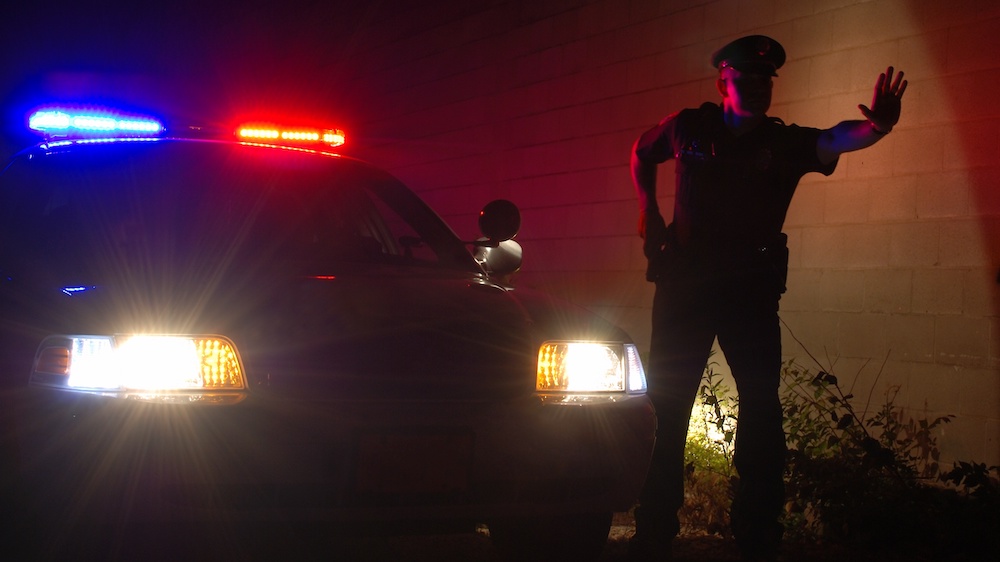If you’re interested in sharing your opinion on any cultural, political or personal topic, create an account here and check out our how-to post to learn more.
____
Recent events have forced people, including myself, to think deeply about the impact of systemic racism and the toxic relationship between law enforcement and Black people in America. In fact, I reached out to an old friend to confirm that I recollect the events in this story accurately and haven’t allowed the 33 years in-between to alter my account.
I grew up in Albuquerque, New Mexico, during the 1970s and ‘80s. Similar to today, Albuquerque residents largely identified as Hispanic/Latino and/or white, with very small numbers of individuals who identify as Black or African-American. One summer day I made plans to go hiking with two friends (one Black and one Latino) in a national park that was about 10 minutes away from my house.
We parked and began our descent down into the canyon. When we got down to the bottom we sat down to rest on several large boulders. As we rested and talked, I picked up a small dirt rock and used it, like chalk, to write “I (heart) Rudy” on the boulder I sat on (because apparently, at that moment, I loved a boy named Rudy). While I don’t recall the specific details, I believe the boy sitting next to me also picked up a rock and wrote something on the rock we sat upon.
The next thing I clearly remember is hearing a muffled loud voice from the top of the canyon, from a megaphone, directing us to freeze and put our hands in the air. When I looked to the top of the small canyon, two officers stood with their weapons drawn and pointed down at us. They instructed us to walk up the trail to where they were. I distinctly remember, as I walked up the trail, being convinced they were going to shoot us, as the given directives of “freeze” and “come up here” seemed quite contradictory. They waited patiently at the top, with their guns drawn and pointed at us the entire time we made our ascent. I was 14 years old.
They immediately handcuffed and “arrested” all of us. I use that term loosely because they didn’t tell us what we had done wrong. We did not have drugs or alcohol; the park was open and we had no idea what had gone awry. My handcuffs were extremely tight, so I told the officer they were cutting into my wrists. The officer told me that I shouldn’t get myself arrested if I didn’t like handcuffs. He never adjusted the cuffs and I had marks on my arms for weeks. As I cried during the entire ride to the juvenile detention center, my friend tried to assure me everything was going to be alright. The officer told him to shut up.
When we arrived at the facility, I was placed in a cell with two girls who looked close to my age, but did not speak any English. The two girls and I sat in that cell for several hours with no outside interaction. It was late at night before I was released to my mother. I later learned that it was hours before she was notified and she had started to panic about where I was. As I was released, I remember feeling very sorry for the two girls still there, waiting.
Ultimately, we were accused of defacing a national monument (which is a federal crime). Though, when I went there only days after this incident, my small markings had been washed away by rain. I took pictures, because even in 1987, at 14 years of age, I knew this was unjust.
While certainly traumatizing, I tell this story not to suggest that my life has been severely impacted by this negative interaction with law enforcement, but to share the moment when I, a young bi-racial Black girl, lost trust in law enforcement. These moments are frequent and widespread for Black people. A Marist Poll recently conducted indicates that 65% of Black people do not trust police to treat Black and white people equally — while most white people do. From this moment forward, I understood that cops were not deserving of blind trust. Some might argue that everyone utilizes law enforcement services, but unlike the white women outed by cell phone videos (Amy Cooper, Svitlana Flom, BBQ Becky, etc.), calling the police is rarely the first plan of action for Black people in the United States.
I don’t know how we would have been treated if we were white, but I know I am not alone in having a pivotal moment with law enforcement that created a permanent fundamental shift in how I viewed them and my awareness of how they viewed me.
Despite what the media might suggest, most Black parents are not raising our children to believe that all cops are bastards. Black people are, however, forced to raise our children to understand the complex notion that not all cops are trustworthy and that many will see our children as a threat, as the officers in my experience must have. Every day we are also forced to reckon with the fact that in spite of all of the education we provide and precautions we take, our loved ones could perhaps be the next name on the ever-growing list of Black people murdered by those sworn to protect and serve.

